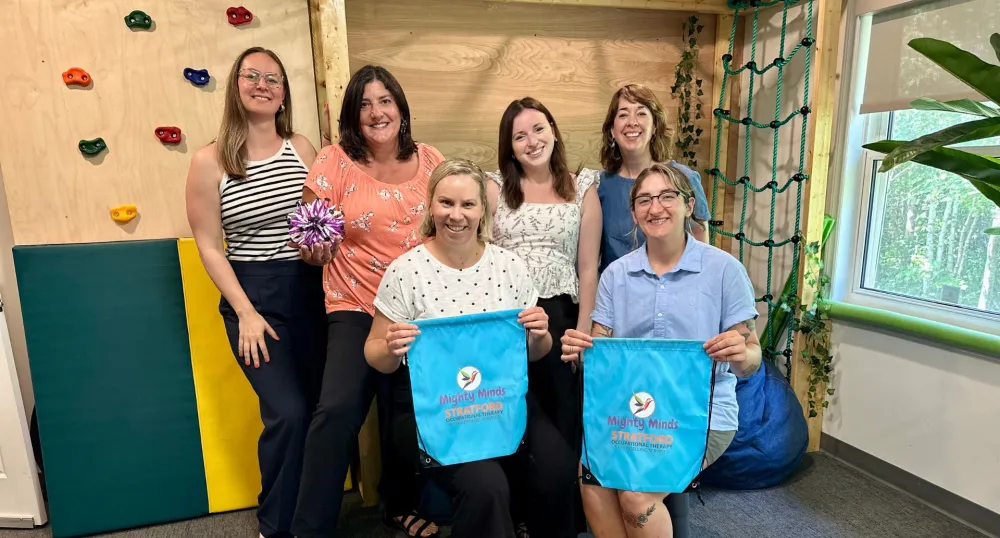
At Stratford Occupational Therapy & Counselling Services, kids aren’t just welcomed - they’re running through the door.
That’s what occupational therapist (OT) Donna MacLeod, co-lead of the Mighty Minds program, sees every week.
“The kids are excited, they’re loud, they’re silly, they’re themselves,” she said. “Sometimes that’s exactly what regulation looks like. They don’t have to mask that when they’re here.”
Mighty Minds is a new 10-week pilot program for kids aged five to 16 who are neurodiverse or showing signs of neurodivergence. It’s designed to help children and their families build confidence in everyday life, whether they’re navigating transitions, settling into routines, or finding comfort in social settings. By creating consistency between therapy and home environments, the program encourages independence, strengthens communication, and supports emotional growth.
The goal, above all, is joy and connection, and they work on that by offering an environment where kids can show up just as they are and be met with understanding.
Funding through the Health Innovation Fund grant has allowed Stratford OT to offer this new group program to their services at no cost to children and families who otherwise wouldn’t have been able to afford it. While it complements existing support through schools or the broader health care system, Mighty Minds offers something distinct: bringing families together in a therapeutic setting that’s community-focused and designed to meet kids and their families right where they’re at.
Each week, kids take part in small group sessions led by a team of pediatric OTs and support workers. The program was co-developed by OTs Donna MacLeod and Jess Findlay, with support from their colleagues Sophie Tonet, Alana Murphy, Charlotte Carlaw, Dave Jamieson, Carrie Drake, Stephanie Rainnie, and counsellors Christine Trainor, Jodi Phillips, and Doug Ellis, who all helped shape its direction.
The team’s shift from traditional one-on-one therapy to a collaborative group model for this program has changed the game not just for the kids, but for everyone involved. There’s a sense of community that forms when children and families connect with others who understand their experiences.
“A lot of the challenges we see relate to anxiety and emotional regulation,” said MacLeod.
Findlay continues, “It’s like a puzzle, figuring out how behaviour, history, environment and sensory processing all fit together. When we understand that, we can support kids in a way that really works for them.”
The program also includes a parent group, co-led by Rainnie and Trainor. These optional sessions are encouraged and are quickly becoming just as meaningful as the kids’ groups.
“This group format has been such a game-changer,” says Findlay. “We’re not just working with the kids, we’re building connections and community. That peer support might be the most important part of all of this.”
Sessions are held in a cozy, sensory-friendly environment with soft lighting, a fireplace, a fish tank, and play areas to move, climb, or just relax. MacLeod helped design the setting to be calm and welcoming for kids and their parents.
“If the kids are leaving the group emotionally and sensory regulated, we hope the parents are feeling the same when they leave,” she said.
In the first 10-week block, the team welcomed 36 kids and their families. Two additional blocks are planned for the fall and winter.
“We want every child to feel safe enough to be fully themselves,” said Findlay. “As different as that may look, we’re here to meet them there.”
With three blocks planned and strong engagement from families, Mighty Minds is making the most of its pilot phase by building skills, connection, and a model others can learn from.
Head to Stratford OT & Counselling Services for more information and visit the 2024–25 Health Innovation Fund to learn more about the fund.
